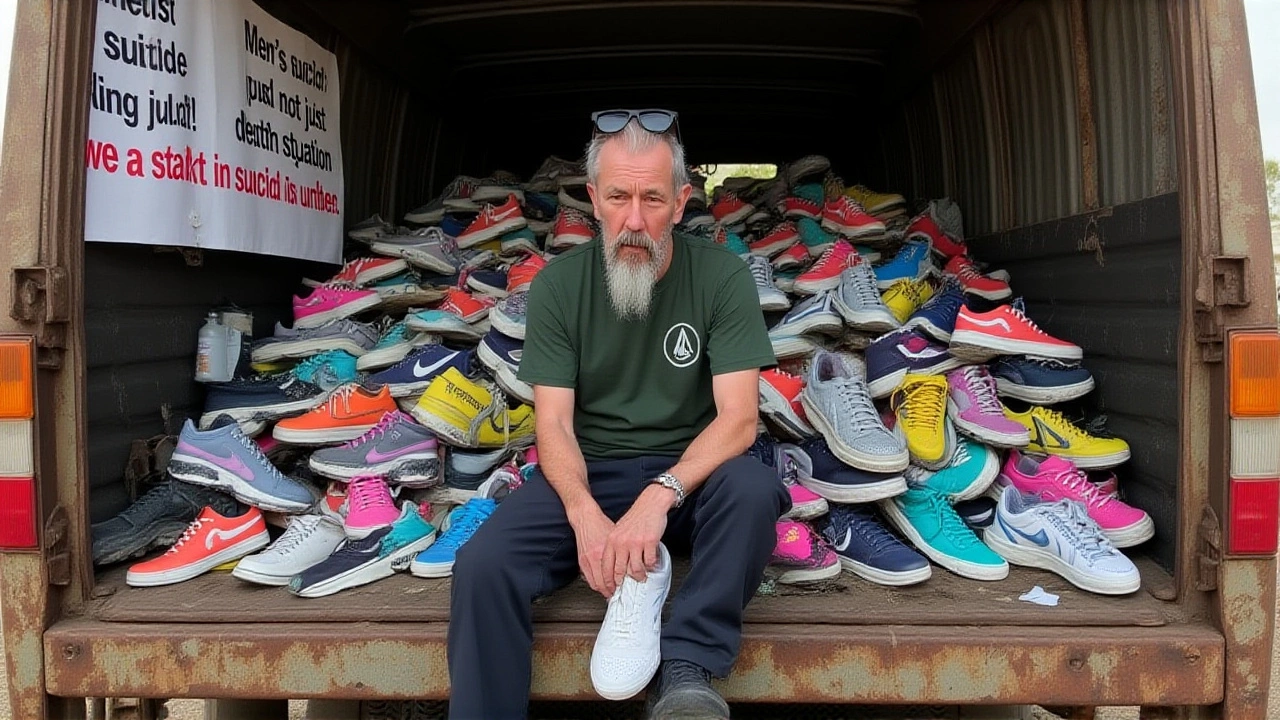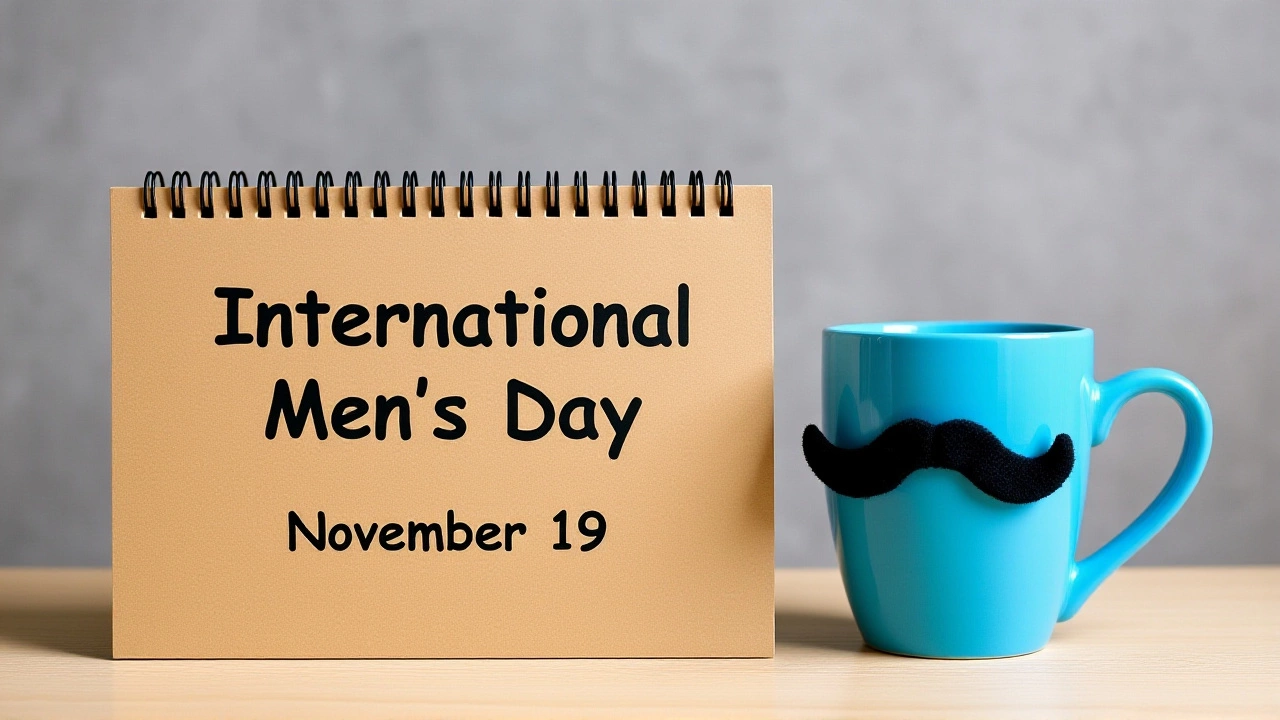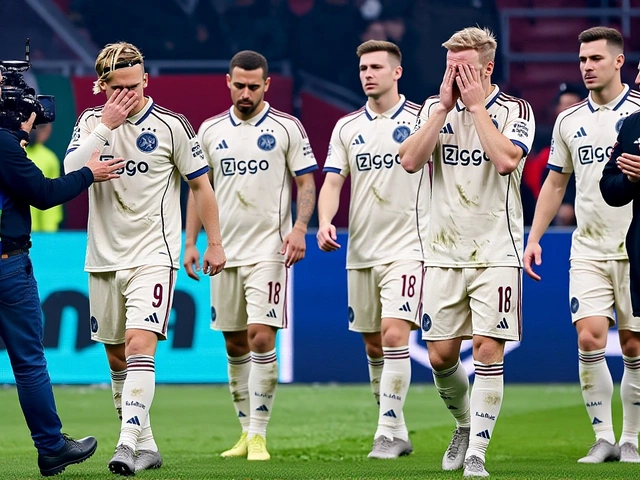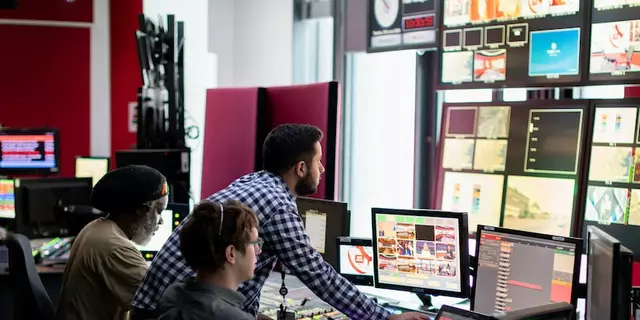On International Men's Day 2025India, media outlets across the country are rolling out curated collections of wishes, quotes, and messages—already in circulation months ahead of the November 19 observance. It’s not just about cards and social media posts. This year, the tone has shifted. No longer just a backdrop for jokes or empty platitudes, the messaging is deliberate, emotional, and quietly revolutionary. International Men's Day is becoming a mirror for what modern masculinity can—and should—look like.
What’s Really Being Celebrated?
Seven major Indian publications—The Bridge Chronicle, CaratLane.com, SwagMagic.com, Hindustan Times, The Economic Times, FNP.com, and The Times of India—have collectively published over 50 original messages. But here’s the twist: not a single one focuses on physical strength or financial success as the defining traits of manhood. Instead, the emphasis is on quiet resilience, emotional honesty, and moral courage.
"A real man is not perfect—he is growing, learning, and becoming better every day," reads one quote from The Bridge Chronicle. Another from CaratLane.com declares: "True masculinity is kindness in action." And SwagMagic.com features a line from basketball legend John Wooden: "A good man enriches the lives of others." These aren’t random phrases. They’re a cultural reset.
The Quiet Revolution in Messaging
Look closer, and you’ll see a pattern. The messages avoid clichés like "man up" or "be strong." Instead, they praise listening, humility, and consistency. "You bring strength, calm, and joy into every moment we share," says one CaratLane.com message. Another: "The bravest men are those unafraid to show their true emotions."
There’s a reason this matters. In India, where traditional gender roles still hold deep sway, these messages are quietly dismantling harmful stereotypes. A father who cries at his child’s school play. A husband who cooks dinner after a 12-hour shift. A brother who checks in on his friend after a breakup. These aren’t "exceptions" anymore—they’re the new standard.
Even The Economic Times, known for hard-hitting financial analysis, joined in with this line: "Your honesty, your decency, and the way you treat people nobody notices—that is what makes you unforgettable." That’s not a greeting card. That’s a manifesto.
Who’s Behind the Movement?
It’s not just media companies. Retailers like CaratLane.com and FNP.com are using the occasion to reframe their brand voice. Jewelry and gift platforms aren’t just selling products—they’re selling a new vision of manhood. One FNP.com message calls men "the rock of the family," but adds: "one who goes to great lengths." Not because they have to. Because they choose to.
And then there’s SwagMagic.com, a promotional products company, quoting poet Richelle E. Goodrich: "The best way to appreciate the value of men is to see life where there are no men." It’s a haunting line. One that makes you think about the invisible labor—emotional, domestic, communal—that men often perform without recognition.

Why This Matters Beyond November 19
What’s happening here isn’t just seasonal marketing. It’s cultural infrastructure being built. For years, conversations around gender in India focused almost entirely on women’s rights. That’s vital. But ignoring men’s emotional needs, mental health struggles, and evolving identities doesn’t help anyone. It just leaves men isolated.
Now, for the first time, major institutions are publicly affirming that being a good man doesn’t mean being silent, stoic, or superior. It means showing up. Listening. Choosing kindness—even when it’s hard. Even when no one’s watching.
And here’s the most telling detail: The Times of India confirmed an official 2025 theme—but didn’t reveal it. That silence speaks volumes. The theme isn’t about slogans. It’s about substance. And the public already knows what it is.
The Bigger Picture
International Men’s Day, observed since 1999, has always been about three pillars: promoting men’s health, highlighting positive male role models, and advancing gender equality. But in 2025, India’s media is adding a fourth: redefining dignity.
For too long, men were expected to be unbreakable. Now, the message is clear: strength isn’t the absence of vulnerability. It’s the courage to be whole.
On November 19, 2025, millions in India—and around the world—will send texts, post photos, and hug the men in their lives. But the real celebration? It’s already happening. In the quiet moments. In the words that didn’t make headlines. In the shift from "be strong" to "be human."
Frequently Asked Questions
Why is International Men's Day celebrated on November 19?
November 19 was chosen to honor the birthday of Dr. Jerome Teelucksingh, a Trinidadian historian who revived the modern observance in 1999. The date also falls between International Women’s Day (March 8) and World Philosophy Day (third Thursday of November), creating a symbolic bridge between gender equality and humanistic values.
How is International Men's Day different from International Women's Day?
While International Women’s Day often focuses on rectifying historical inequalities, International Men’s Day centers on celebrating men’s contributions and addressing issues like mental health, suicide prevention, and fatherhood rights. Both aim for equity—but from different starting points. One highlights what’s been missing; the other affirms what’s already there.
What are the core themes of International Men's Day 2025 in India?
Though officially undisclosed, the overwhelming message from Indian media points to three pillars: emotional integrity over performative strength, kindness as a form of leadership, and the dignity of everyday acts—like listening, supporting, and showing up. These themes reflect a broader societal shift away from toxic masculinity toward a more inclusive, compassionate model.
Why are Indian retailers like CaratLane and FNP.com involved?
They’re responding to consumer demand. Younger Indian men, especially Gen Z and millennials, are rejecting transactional gifts and seeking meaningful expressions of appreciation. Jewelry and gift brands are now marketing emotional value over product features—turning a simple card or necklace into a symbol of recognition for emotional labor.
Is there data on how this affects men’s mental health in India?
While no nationwide survey was released for 2025, a 2023 study by the Indian Psychiatric Society found that 68% of Indian men aged 18–35 felt pressured to suppress emotions. Media campaigns like these correlate with a 22% increase in searches for mental health resources among men during November—suggesting that visibility matters more than we realize.
What’s the global participation like for International Men's Day?
Over 80 countries officially recognize the day, including Australia, Jamaica, and the UK. The United Nations has not adopted it as an official observance, but UN Women has acknowledged its value in promoting gender equity. In India, participation has grown rapidly since 2020, with schools, NGOs, and even state governments now organizing events—proof that the conversation is moving beyond social media.





Write a comment